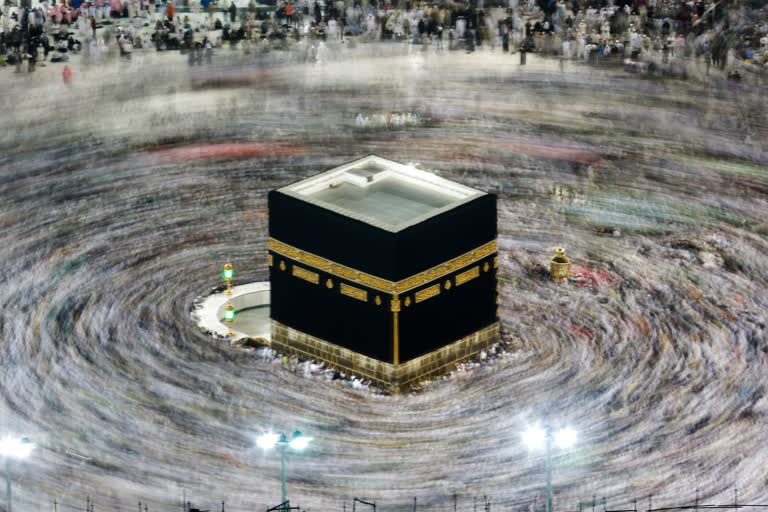Dubai:Saudi Arabia on Thursday halted travel to the holiest sites in Islam over fears about a viral epidemic just months ahead of the annual haj pilgrimage, a move that came as the Mideast has over 220 confirmed cases of the new coronavirus.
The extraordinary decision by Saudi Arabia stops foreigners from reaching the holy city of Mecca and the Kaaba, the cube-shaped structure the world's 1.8 billion Muslims pray toward five times a day. The decision also affected travel to Prophet Muhammad's mosque in Medina. Authorities also suspended entry to the kingdom to those with tourist visas from nations affected by the new virus.
The decision showed the worry about the outbreak potentially spreading into Saudi Arabia, whose oil-rich monarchy stakes its legitimacy on protecting Islam's holy sites.
The epicenter in the Mideast's most-affected country, Iran, appears to be in the holy Shiite city of Qom, where the fateful in reverence reach out to kiss and touch a famous shrine. Iran now has the highest death toll from the virus outside of China, the epicenter of the outbreak.
There have been no confirmed cases of the new coronavirus in Saudi Arabia amid the outbreak.
Read:Pakistan confirms its first two cases of coronavirus
“Saudi Arabia renews its support for all international measures to limit the spread of this virus, and urges its citizens to exercise caution before traveling to countries experiencing coronavirus outbreaks,” the Saudi foreign ministry said in a statement announcing the decision.
Disease outbreaks always have been a concern surrounding the haj, required of all able-bodied Muslims once in their life, especially as pilgrims come from all over the world. The earliest recorded outbreak came in 632 as pilgrims fought off malaria. A cholera outbreak in 1821 for instance killed an estimated 20,000 pilgrims. Another cholera outbreak in 1865 killed 15,000 pilgrims and then spread worldwide.
More recently, Saudi Arabia faced a danger from another coronavirus that caused the Middle East respiratory syndrome, or MERS, which jumped from ill camels to humans. The kingdom increased its public health measures during the haj in 2012 and 2013, though no outbreaks occurred amid the pilgrimage.
Since September 2012, there have been nearly 2,500 cases of MERS reported, with 858 deaths attributed to the virus, according to the World Health Organization.
Since it emerged in December in central China, the new coronavirus has sickened 82,000 people globally, with more than 2,700 deaths.
With inputs from AFP
